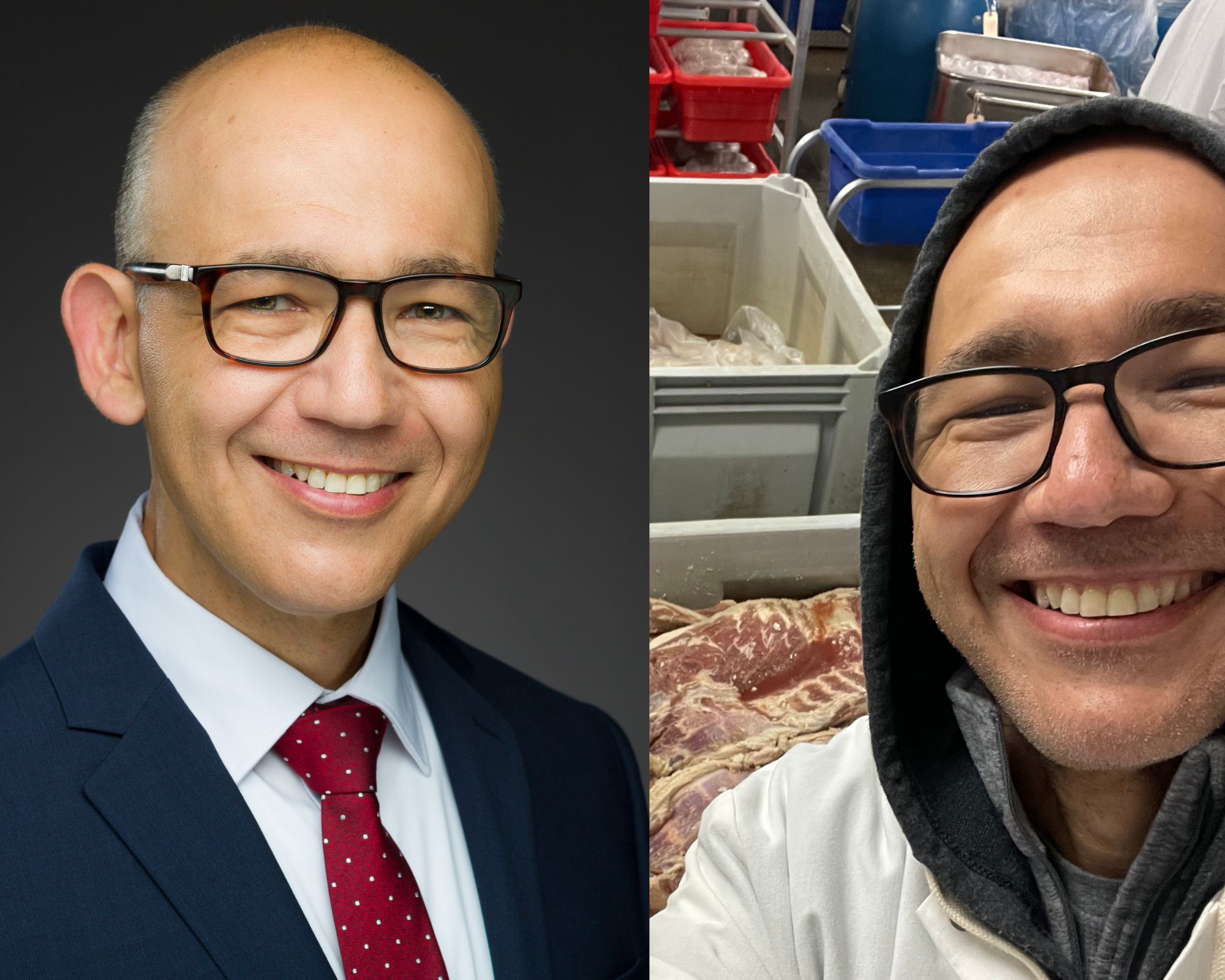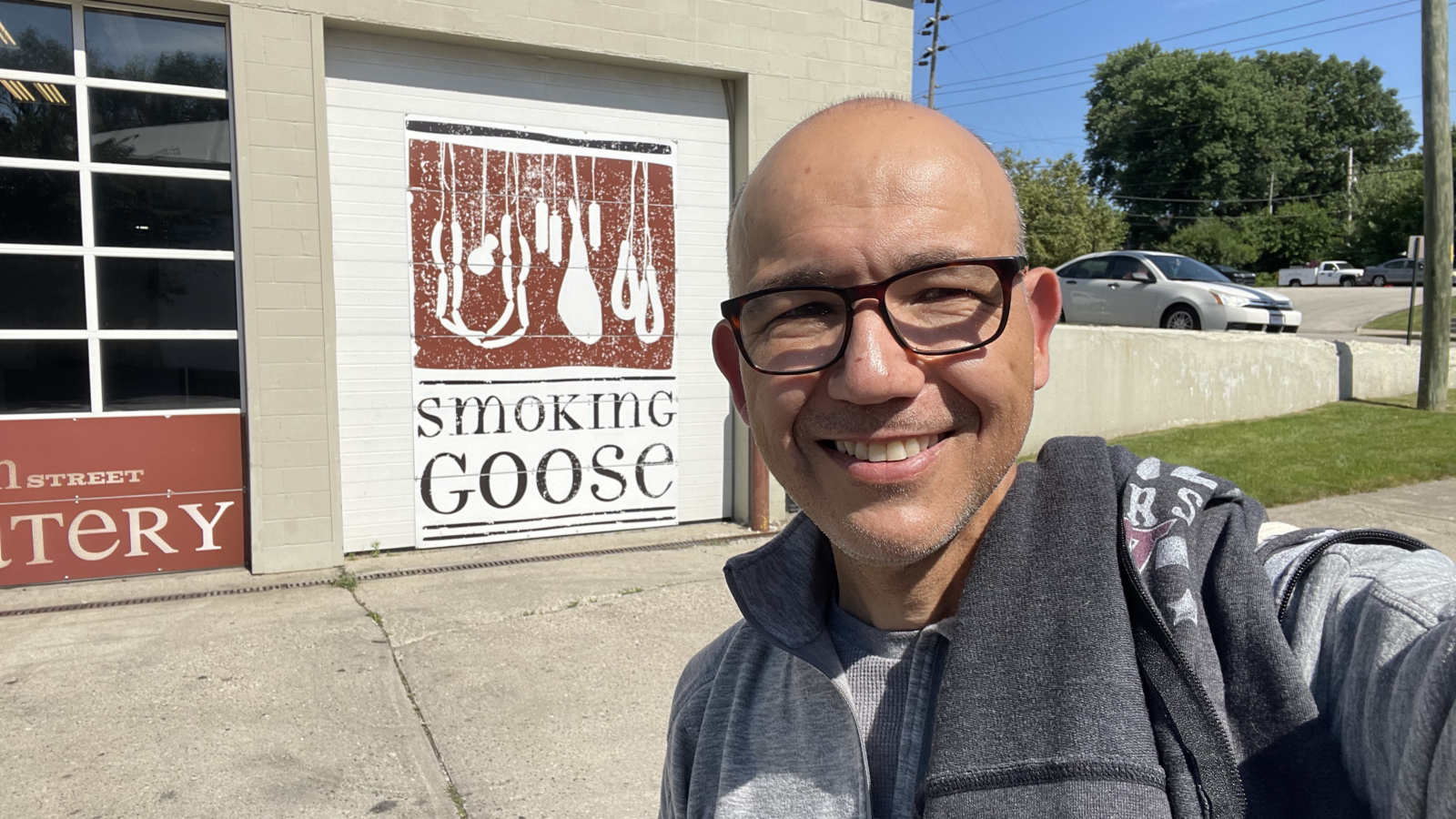When most people get a day off from work, they spend time in the garden, take the family to the beach, or see friends. Mike Lalor, the Chief Medical Officer at one of the largest hospice and palliative care organizations in North Carolina, volunteers at a meat-processing plant.
Mike wanted to learn how to make sausages—and not any old sausage, a specific sausage that had arrived on a charcuterie plate he ordered at a local restaurant a month earlier. An avid chef and voracious learner, he did some internet research and found out where it was made. Thus began his pilgrimage to Smoking Goose in Indianapolis, Indiana.
“For me, relaxation is learning something new,” he says.
During the last year and a half, many people found themselves with limited personal time as remote work spilled over into early mornings, late nights and weekends. To recharge, some binged on Netflix while others baked bread. Lalor took to his basement. Inspired by cooking websites, he learned about fermentation and koji.
Studies have shown that taking time away from your desk is good for your mind, body and spirit, especially if you’re an executive in a demanding and ever-changing field. Lalor is proof that adding in passion and engagement helps you hit the reset button. Over the years, he has gotten his pilot’s license, run with the bulls in Pamplona (twice) and practiced the martial art of kendo.
Trimming the fat off chunks of pork butt, pushing meat into a sausage stuffer, and mopping up floors may not be everyone’s idea of bliss (as it was for Lalor). It’s about diving into whatever interests you.
“The key word is ‘experiential,’” says Lalor.

Curiosity, openness, and willingness to learn are classic leadership traits—and also help to build resilience.
Lalor signed up for a class at the boutique sausage plant three states away. And when he found out that they also offered a volunteer program, he opted in. “There’s that saying that everybody likes sausage, but nobody likes to know how it’s made. Well, I wanted to know how it was made,” Lalor says.
After taking two short flights, he arrived at the plant and was ready to work. “I wanted them to know that I was there for the right reasons, and not like a tourist looking at the animals at the zoo.”
Because he was open to anything, Lalor got to experience everything. He also got a chance to appreciate the teamwork and bonding that go into creating a good product. “It was great to see their willingness to help the new person,” adds Lalor. Values like respect, cooperation, clear and open communication between production and management are what make any organization function well. “The principles for success are analogous,” says Lalor.
It was a welcome departure for Lalor, whose last year has been marked by 18-hour days at the office and working weekends, as has been the case for most people at frontline healthcare organizations. Other than his excursion to Indiana, he can’t remember the last time he had a real day off since the pandemic began. As the person in charge of his company’s COVID response, he has been immersed in designing new work routines, securing PPE, coming up with return-to-work protocols and communicating with relatives and friends of hospice patients about why (because of COVID) they can’t get in to see their dying loved ones.
After a full day at Smoking Goose, Lalor says he blended in pretty well. “I felt like part of the team,” he adds. “It’s not like I’m going to open a sausage plant,” says Lalor. “It was just an awesome and personal experience that I will never forget.”
Almost sounds better than a day at the beach.


